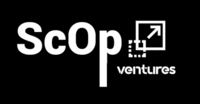Tuesday, January 22, 2019
Kevin O'Connor, ScOp Venture Capital, On Startup Success and Investments

This morning's interview is with Kevin O'Connor, a longtime investor and serial entrepreneur, who is now running venture capital investment firm ScOp Venture Capital (www.scopvc.com). Kevin sold his last company, Santa Barbara-based Graphiq, in July of 2017 to Amazon, but has a long history of successful companies, including founding DoubleClick.
Congrats on the new name for your venture capital firm. Tell us a little bit about the firm?

Kevin O'Connor: I've been doing venture since my first deal in 1995, and have been investing on and off since I moved to Santa Barbara in 2001, under the name O'Connor Ventures, and did that full time until 2009, when I started Graphiq, and switched back into doing another company. I ended up doing that for eight years, when it was bought by Amazon for use in Alexa, which is really cool. Just this past September was a year with Amazon, when I left, and we started investing in September under the new name, ScOp Venture Capital.
What types of companies are you making investments in?
Kevin O'Connor: I've learned a lot over the years. It's always hard with venture capital. The companies we're generally looking for are software-as-a-service-based companies, and although we don't just invest in SaaS companies, it's our primary focus. We're looking for companies that have already brought a product to market, with $500,000 to a million dollars in revenues in ARR. We're looking for companies past the market validation stage, but are trying to figure out the growth stage. From an investment standpoint, we're willing to pay a higher amounts to lower our risk, overcoming those two major hurdles which wipes out most startups. The other point, is that those are where I can add the most value, helping the CEO or executives, mentoring them on go-to-market and expansion, because I have been through that cycle many times and with many companies.
Is this fund just your own investment fund, or do you have outside LPs?
Kevin O'Connor: It's 100 percent our own funds. We thought about bringing in other investors, but I couldn't, because I just hate paperwork. The kind of deals we're doing, $500K to $1M, that gives us enough capital. If we took in other people, we'd have to go after more deals, and bigger deals, and there's plenty of competition in that part of the market. If anything, the nice thing in SoCal, is that it's under-represented in terms of capital. Most of the big VC funds just keep getting bigger and bigger over time, so it makes it hard for them to play in this kind of market, especially if they have to travel.
As someone who has been both an investor and an entrepreneur, what made you decide to head back to investing this time?
Kevin O'Connor: That's a great question. I would say, although I love doing startups, and nothing gets me more fired up and lost in time as anything else, it's a young person's game. What I lack in endurance and mental capacity, I make up for in wisdom and experience. It's just hard to work 80-hour weeks when you're 57. I also have other interests in life I am trying to pursue. The irony is, I've already just started working on another product! I don't know if it will turn into another company, but the product should be launching shortly. It's not a billion dollar company, but a personal passion, and something that would be cool to have a big impact.
Having taken so many companies from startup stage to a successful exit, are there any big lessons you have learned along the way?
Kevin O'Connor: Definitely. You have to simplify the problem to the simplest stage. It's Occam's Razor, which works in life and with companies, and it's pretty simple. Find a problem, a major problem, for a company or person, something that can save them time or money, or make them money, and really focus on that. Focus obsessively on that. Figure that out, and once you identify the problem most efficiently, solve it. With the successful things I have done and teams I have worked with, and what I'm looking for in startups, is those that start with a problem. Make sure they are actually solving a problem, a big problem. I'm a little less obsessed with the idea of a unicorn and looking for billion dollar companies, because there are lots of interesting, big problems, which are still sub-billion dollars. However, the number one reason companies fail, is their product doesn't actually solve a problem. It's so obvious and so simple. The number one reason I don't invest in a company, is because a company is not showing market traction. People will give companies money if they solve a problem for them. So, step one, it's the team, finding a solution that can scale, and founders who are doing it for the right reasons. It's that simple.
What do you mean, doing a startup for the right reasons?
Kevin O'Connor: They should be passionate about what they're doing, so much so they'd do it for free—not for the money. The most successful entrepreneurs start startups because they enjoy it and love it, and because it's fun. People are doing it because they want to make an impact, build something important, and something lasting, and it's not about the money. Now, don't get me wrong—money is a bit of a scorecard, about how much value you are creating. Our common store of value is money, and if you create a lot of value, people give you a lot of money, but you've got to start with that value, first.
How many investments have you made now under ScOps, and how many investments do you think you'll do a year?
Kevin O'Connor: We haven't made an investments yet, but we have two terms sheets in progress right now. Hopefully, in the next few days, we'll get one of those done. I'm sure exactly how many we'll do in a year, but we kind of have modeled out $10M in deals over three years, roughly $3.5M a year, though we're well outpacing that now. Whenever we see a good deal, we'll pursue it.
Having recently built and sold a company locally, as well as elsewhere, what have you learned about building companies outside Silicon Valley?
Kevin O'Connor: All the companies I have invested in and built have been outside of Silicon Valley. Although Silicon Valley is the heart of innovation, it's not the only place. Increasingly, there are really smart, talented people around the world and around the United States. When I moved to Santa Barbara, I actually didn't know a lot about the technology industry here. I didn't expect to find the level of tech talent and tech companies in the area. I was blown away. In fact, it's funny to have so many venture capital folks come down here becoming involved with companies, and tell me they're envious of what we have in Santa Barbara, where people actually stay at companies, and there's longevity to employees, and that it's not Silicon Valley, which is extraordinarily expensive. Lots of people have found it to be a great retreat. The one difficult part of Santa Barbara, which w found when we were hiring at Graphiq, is that most of the new employees end up coming out of school, because it's hard to have four kids and a house here, so finding executives can be a bit more of a challenge.
Thanks!